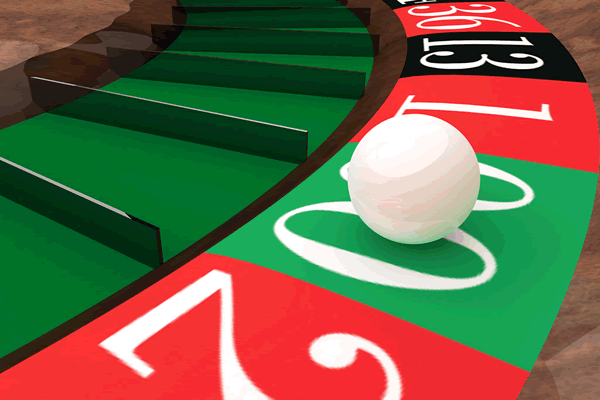A note: This article is about how I am thinking about breeding and is not meant to be statistically accurate. I am using common games as analogies. There is lots to learn about breeding, but this helps me when wondering why my 2 best horses produced a dud when 2 bad horses produced a stud.
I was sitting at a blackjack table at Aria last week when one of the players at my table told us to look at the table next to us. Why? Because that Roulette Wheel had 00 on 8 of the last 12 rolls.
Almost immediately, I went from being up 50% to broke after I had 8 hands in a row of 14/15/16 starters to the dealer’s 20. I thought my luck was turning around with my all in bet with KK, only get get wiped out on a blackjack to end my evening.
So what does this have to do with breeding on Zed Run? Well, maybe nothing, but it does shape my view on what’s happening and why many of the results look so dang… Random!
Lets start with that Roulette wheel that produced so many 00. Every spin has a 1 in 38 chance of hitting on any number. Over thousands of spins, these will equal out and 00 will show up about 2.6% of the time, just like any other number.
But in a span of 12 rolls, those numbers don’t play out. And someone who was standing behind the Roulette table that had never played might assume that 00 is the best bet. Or they might think some other number is “due” because it hasn’t come up in a while.
But really, they are just seeing a small sliver of results that feel random because, well, over those 12 rolls they are. It’s the same idea as my hands in blackjack. If someone saw my last 12 hands, they’d probably never play Black Jack again! I bust, the dealer gets 20. This game sucks!
So again, back to Zed, what you are seeing in your barn is a very small view into a much larger equation. And the bigger the variance (i.e. buterins vs Nakamotos), the crazier the swings can look.
Here’s an example:
2 great horses might produce great offspring 20% of the time.
2 decent horses might produce great offspring 5% of the time.
2 bad horses might produce great offspring .2% of the time.
Your single bred in a month in all those cases has a much greater chance of not producing a great horse than producing a prized winner. And there’s a wide variety of results between donkey and super-start that each has some statistical basis.
But looking at what you (or you and your buddies) have produced is kinda like looking at those last 12 results of Roulette and assuming you have it figured out.
There are many theories and many learnings that will be uncovered over the next few months, years, and hopefully decades. And the most obvious conclusion (breeding results are random) is likely not going to be the winning formula as the game matures.
So what should you do about it? Well, one option is to focus on growing your stable and taking more shots. Back to the Roulette analogy, if you put on chip on one number, it will take some luck to hit. But if you spread more chips around the board, you’ll have a better chance of hitting a winning number.
That’s why my personal strategy includes starting with legendary/exclusive females, breeding them to get more exclusives, and building a solid foundation, especially if you are new to Zed.
But that might not work for you or work for you forever. You also might want to work your way up to proven winners and more pure bloodlines. There’s really no right or wrong way to build your stable, but it’s important to understand that each path will give you different odds and risks to get to your goals.
Don’t get discouraged by a bad breeding session. If you’re in it for the long haul, realize you have 12 chances for the year. And winning horses are at best 1/12 for every race, so it may take some time.


